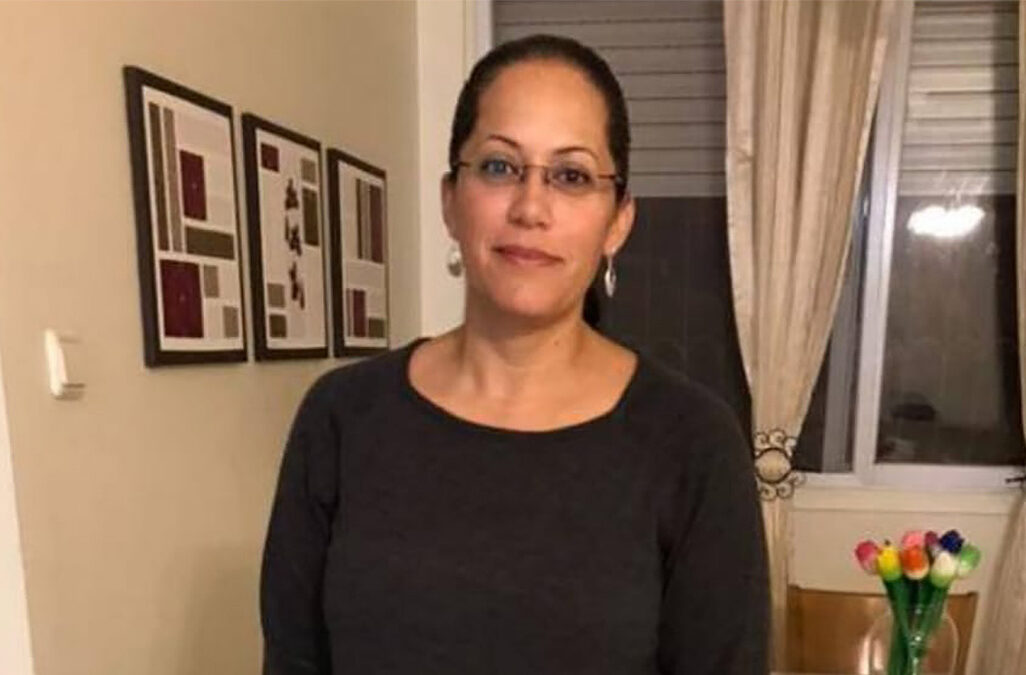
Routine: I serve part-time as a social worker for the Elderly Protection Laws, and part-time as the Elder Abuse Prevention Coordinator for the Municipal Welfare Department of South Jerusalem. Normally, each staff member in the department assists between 150 and 250 clients.
In The Days of Corona: Since the outbreak began, my primary role is social worker for Elderly Protection Laws. The main part of my job right now is to identify seniors that I care for routinely, whom we suspect are at-risk – seniors who are confined to their home with a family member with whom they have a difficult relationship, or senior citizens with no family assistance.
Getting Organized: At the beginning of the crisis, we mapped out patients, and we started with them. We later extended the exploration to all our other clients. Then we contacted a segment of all the residents of Gilo neighborhood over the age of 70. At first, we were under a lot of stress, with too many requests for assistance. That created confusion between our different directories. Now we have reached everyone.
Care: In the beginning, we offered prepared meals to clients, and oversaw Superpharm’s delivery of their medications. We later received a donation of food baskets from the "Friendship Foundation." We also started offering a a grocery shopping and delivery service, orchestrated by a team of volunteers, for the elderly that are not under financial stress.
Precautions: The current health guidelines advise against home visits, and if there is an emergency, to go with a mask and gloves. Thankfully, we have had no such case. There is no public access to our department’s offices. The security guard passes envelopes through the window.
There is No End in Sight to the Work: At the same time we deal with COVID-19 related crisis activity, we continue on-call services as usual. The municipality always has three social workers on-call from 15:30 to 23:00, and two from 23:30 to 07:30 in the morning. Now, with the number of coronavirus cases increasing, I have extra on-call duties due to a colleague who went into quarantine.
Spirit: As soon as I leave home for work, I am fearful and concerned, but not the kind of concerned that prevents me from leaving home. Throughout this crisis, I have been at work every day. It's close to my house, but I travel by car. The work is now very intense. I feel a heavy burden, stress, and pressure. At first, it was unclear how many of us could get to work. In the first week, we had not received permission to work from home. Now, mainly mothers with small children are the ones working from home.
At Home: My husband is also an essential worker. We have a son in the army and two girls in school. My kids are studying online every day, and their school has invested a lot in it. And still, when the kids are home all day, it's not easy. I work full time, arrive home exhausted, and need to give them attention, too. I have parents who are at-risk and I can't visit them. Occasionally I come to their house, say hello from the street while they are on the balcony. I buy things for them – just that.
Highlight: All the seniors I call are thrilled and appreciative, even those we didn't know. In conversations with them, there is a lot of frustration, stress, and loneliness. Many have asked us to call again, not because they need anything, but for company. I have a person with a difficult life situation, a Holocaust survivor. I called to ask her if she wanted prepared meals. Then she told me she was suffering from terrible stress and uncertainty. Suddenly, when someone knocked on the door, and she saw the prepared meals at the door, it made her warm in her heart that she was important to someone. It was exhilarating to reap the benefits of our work. A lot of seniors we call say, “I don't need anything but check with my neighbor,” and then I call the neighbor, and he tells me, “I don't need anything, check with my friend.”
___________________________________________________________
Brought to press with the help of the International Relations Division of the Histadrut






